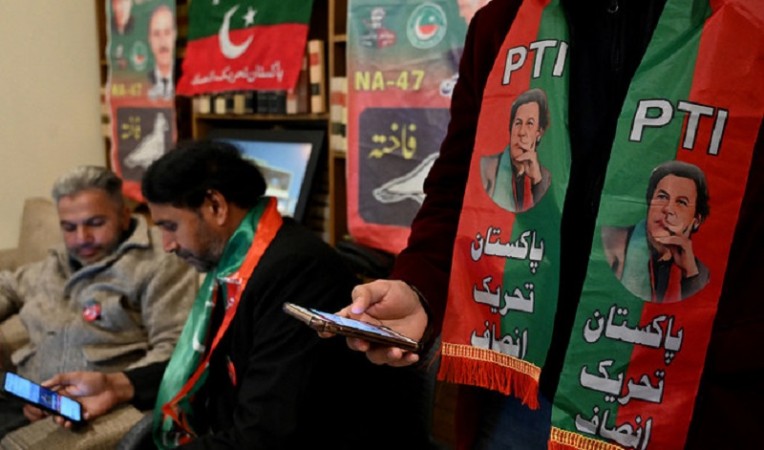
Mobile phone services have been temporarily suspended across Pakistan as the nation embarks on its national election, the interior ministry announced.
The move comes amidst heightened security concerns following a spate of militant attacks leading up to the election. It follows a call from incarcerated former Prime Minister Imran Khan for his supporters to remain at polling stations until results are declared.
The interior ministry cited recent terrorist incidents that claimed lives as the rationale behind the suspension, stating it was crucial for maintaining law and order and addressing potential threats.
On Wednesday, two explosions near election offices in Balochistan province resulted in the loss of 26 lives. The Islamic State claimed responsibility for the blasts via its Telegram channel. Various other groups, including the Pakistani Taliban (TTP) and Baloch separatists, have also conducted attacks in recent months.
Security measures have been intensified across the country, with tens of thousands of troops and paramilitary forces deployed, including at polling stations. Additionally, Pakistan has closed its borders with Iran and Afghanistan for the day as a precautionary measure.
Unofficial election results are expected shortly after polls close at 5 p.m. local time, with a clearer outcome anticipated by early Friday.
The primary competition is anticipated between candidates supported by Imran Khan's Pakistan Tehreek-e-Insaf (PTI) party, which emerged victorious in the previous national election, and the Pakistan Muslim League (PML-N) led by three-time Prime Minister Nawaz Sharif.
Bilawal Bhutto Zardari, the 35-year-old son of former Prime Minister Benazir Bhutto, has also mounted a vigorous campaign in a bid for the top office.
Analysts speculate that no single party may secure a clear majority, leaving room for Pakistan's influential military to potentially influence the outcome. While the military has denied direct involvement in politics, its stance could prove pivotal in determining the election's outcome.
Imran Khan alleges that the military is orchestrating a crackdown on his party, while critics suggest that Nawaz Sharif enjoys backing from the military.
The roles of the two former prime ministers have seemingly reversed since the last election in 2018, with Khan previously perceived as the military's preferred candidate, while Sharif was embroiled in corruption charges.
Given the likelihood of no single party clinching a majority, addressing Pakistan's numerous challenges, including securing a new IMF bailout program as the current one nears expiration, will pose a formidable task for the incoming government.
Smaller political parties may hold sway in forming a government, which requires 169 seats in the 336-member National Assembly. Additionally, independents, many of whom are aligned with Khan, could tip the balance by joining various parties post-election. Khan has stated that his candidates will not support either Sharif or Bhutto Zardari.
Pakistan's Election: Candidates, Challenges, Public Sentiments, and More
Pakistan's 2024 Election: A Tug-of-War for Power and Regional Stability
Pakistan Election Gears Up: 44 Parties Vie for Parliamentary Seats